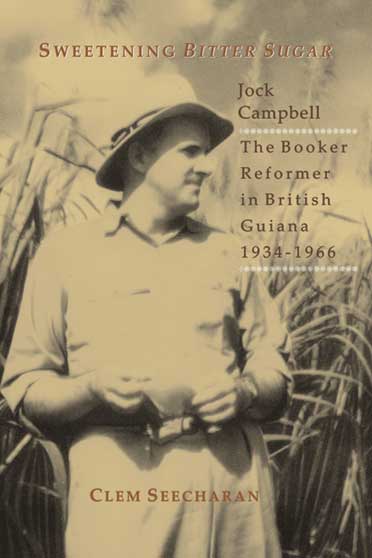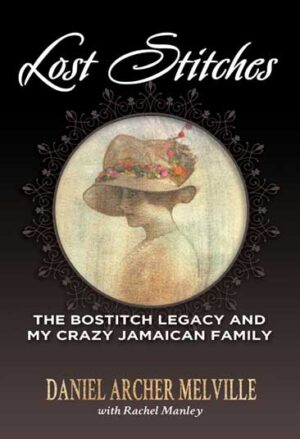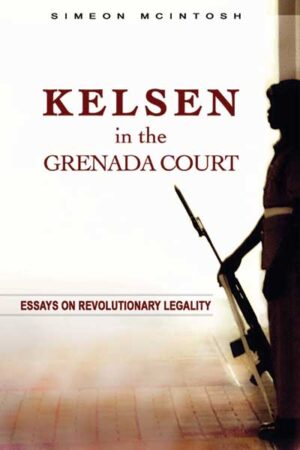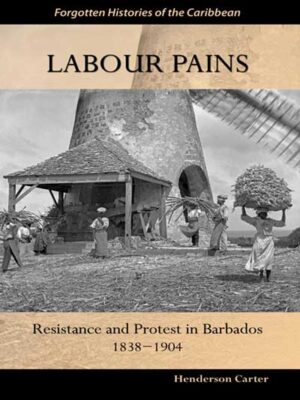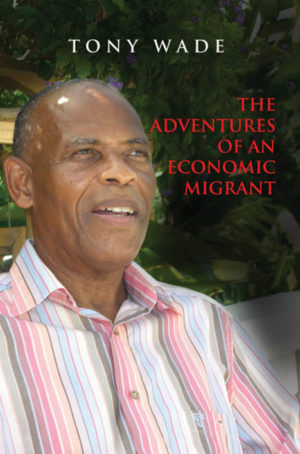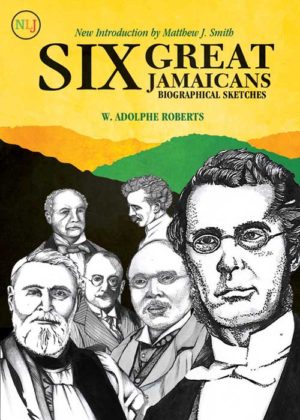Description
This book is about Jock Campbell’s role in the shaping of British Guiana (Guyana) towards the end of Empire. Campbell, the head of the Booker Company which owned most of the sugar plantations in colonial Guyana was a reformer whose Fabian socialist beliefs drove him to secure major benefits for sugar workers in the 1950s−’60s.
Clem Seecharan explores the fascinating interplay between Campbell’s programme of reforms and the doctrinaire Marxism of Guyana’s charismatic politician, Cheddi Jagan. Fed by his notion of ‘bitter sugar’ and an unrelenting hostility to Booker, Jagan exploited the loyalty of Indian sugar workers to foment instability on the plantations and thus undermined Campbell’s mission to alleviate the colony’s bitter plantation legacy.
Seecharan provides a rigorous analysis of Campbell – a complex, progressive contradictory and passionate man – and his work in turbulent British Guiana, marked by nationalist stirrings, mobilisation doe decolonisation, the fragmenting of Jagan’s nationalist coalition and descent into racial hatred and violence.
Sweetening Bitter Sugar is part biography, part history and politics. It also encompasses ethnicity, trade unionism, agricultural and technological innovation and health, housing and social welfare reforms. It is an outstanding, elegantly written study in modern Caribbean historiography.
About the Author
Clem Seecharan is Professor of Caribbean History and Head of Caribbean Studies, London Metropolitan University.
Contents
List of Illustrations (29)
Abbreviations
Preface
PART 1 – FORCES THAT SHAPED A RADICAL TEMPERAMENT
Prologue – From Cheddi Jagan’s Bitter Sugar
- Sugar in My Blood
- Sugar in His Blood: Jock Campbell’s Antecedants
- Campbell’s Boyhood: The Impact of the ‘Other’
- Beyond the Mould: Down and Up from Oxford
PART 2 – THE GUYANESE SUGAR PLANTATION AND THE MAKING OF A REFORMER, 1934-1940
- Demystifying the Romance of Demerara Sugar: Campbell’s Apprenticeship in British Guiana, 1934-37
- Trouble on the Plantations, 1935: Workers Demand Change
- Ayube Edun, The Guiana Review and the Birth of MPCA, 1936-39: Sugar Workers Find a Voice
- Campbell, Mild Reforms and the Beginning of the Booker ‘Cause’, 1938-40
PART 3 – GETTING INTO STRIDE: THE CASE FOR REFORM VINDICATED, 1941-1949
- Campbell with Sydney Caine at the Colonial Office: A Model for Reform During the War
- Governor Lethem and the Plantocracy in British Guiana, 1941-46
- Race, Constitutional Change and the PAC: Edun, Lethem and the Making of Jagan’s Marxism, 1944-48
- ‘Bitter Sugar’ and Unionism: Jagan, the MPCA and the Road to Enmore, 1944-48
- ‘Bitter Sugar’: The Venn Commission and its Context, 1948-49
- The Venn Commission Report, 1949: Blueprint for Campbell’s Reform
PART 4 – REVOLUTION OR REFORM? JAGAN’S MARXISM v. CAMPBELL’S REFORMISM
- ‘Bitter Sugar’: Unearthing the Roots of Jagan’s Marxism
- Campbell’s Response to Jagan’s Politics: Anti-Communism, 1947-56
- Belated Ally?: Campbell’s Modus Vivendi with Jagan, 1957-60
- Jagan (and Burnham) in 1960: Campbell’s Confidential Assessment
PART 5 – SWEETENING ‘BITTER SUGAR’ I: SHAPING THE INSTRUMENTS FOR REFORM
- ‘Practical Idealism’: Campbell’s Philosophy on Reform
- The Commonwealth Sugar Agreement (1951) and British Guiana: The Foundation for Campbell’s Reforms
PART 6 – SWEETENING ‘BITTER SUGAR’ II: MODERNISING BOOKER, 1950-1951
- Shaping the New Order: Campbell and the Modernising of Booker, 1950-51
- Becoming an Efficient Sugar Producer: Mechanisation in Field and Factory
- Research and Productivity on Booker Sugar Estates: The Work of Dr Harry Evans
- Building ‘Hedges’: Facing up to the Hazards of Guyanese Politics after 1953
PART 7 – SWEETENING ‘BITTER SUGAR’ III: REFORMS ON THE PLANTATIONS, 1934-1964
- Burning the ‘Bridge to the Grave’: Dr George Gigliolo and the Eradication of Malaria, 1933-48
- Health on the Plantations: Research and Preventative Medicine
- Demolition of the ‘Pig Sties’: Housing Reform on the Plantations
- Social Welfare on the Plantations, with Special Reference to the Community Centres and Women’s Welfare
- Wages and Social Amenities in Field and Factory
- ‘Guianisation’ of Sugar: Placing Guyanese at the Heart of Booker
PART 8 – JAGAN, CAMPBELL AND THE POLITICS OF SUGAR IN THE CONTEXT OF THE COLD WAR, 1960-1964
- Kennedy’s Obsession: Jagan, Castro and the Decolonisation of British Guiana, 1960-63
- Neither Reform nor Revolution: Jagan, Campbell, the Cold War and the Sugar Industry, 1961-64
CONCLUSION
- ‘On the Road to Nowhere’: Campbell’s Mission in British Guiana
Appendices
Bibliography
Index


